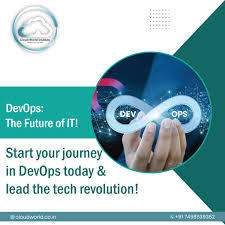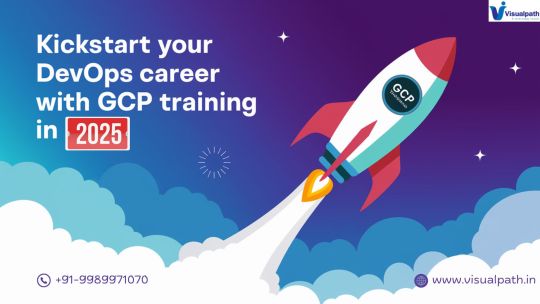#devops institute
Explore tagged Tumblr posts
Text
https://upflairs.com/
#web development courses in jaipur#web development institute#devops institute#web development institute near me#cloud computing courses with placement#best institute for full stack developer#best institute for web development#web developer institute near me
2 notes
·
View notes
Text
devops course

The Devops course at Softcrayons Tech Solutions in Noida provides practical training in key areas like continuous integration,mechanical testing, and deployment. Experienced trainers offer hands-on learning to secure students gain real-world skills. This approach helps prepare devops training students for successful careers in IT and Devops roles.
#softcrayons#best devops institute in noida#devops#devops course#devops institute#best devops institute
0 notes
Text

🚀 Join Us TODAY for an Exclusive Azure DevOps Demo! 🚀
💡 Ready to boost your DevOps skills? Learn about Azure DevOps in our hands-on online demo TODAY at eMexo Technologies! 🎓🔥 PLUS, we're offering an incredible 40% OFF for a limited time! 💥
📅 Don't Miss Out – The clock is ticking! ⏳ Gain real-world insights and start your journey to becoming a DevOps pro! 🛠️
👉 CLICK THE LINK https://www.emexotechnologies.com/courses/microsoft-azure-devops-training-course-az-400/ to secure your spot NOW! 💻✨
📅 25th Sept 2024 🧭 9 PM ( IST )
Format: Online Training
Contact Us For More Info:
📞 Phone: +91 9513216462
🌐 Website: https://www.emexotechnologies.com/
#azure devops#azure training#devops#cloud computing training#emexotechnologies#bangalore#electroniccity#traininginstitute#e learning#online courses#online training#tech education#tech skills#software training institute
2 notes
·
View notes
Text



Levitica Technologies Pvt Ltd, established in 2013, specializes in web development and testing. We have branches in Hyderabad and Rajahmundry; the Hyderabad office focuses on project execution, while the Rajahmundry branch is dedicated to training and placement services.
#software companies in rajahmundry#Software Development Companies in Rajahmundry#Software Companies in Andhra Pradesh#Software Trainings in Rajahmundry#Software Course Training in Rajahmundry#Software Testing Courses in Rajahmundry#Full Stack Development in Rajahmundry#Digital Marketing Course in Rajahmundry#AWS Course in Rajahmundry#Devops Course in Rajahmundry#Linux Course in Rajahmundry#Best Software Training Institute in Rajahmundry#Best Placement Provider in Rajahmundry
2 notes
·
View notes
Text
Azure Courses in BTM Layout
Azure courses in BTM Layout, Bangalore, offer hands-on training in Microsoft Azure's cloud services. These courses cover fundamentals, architecture, and advanced topics like AI, DevOps, and data analytics. Designed for beginners and professionals, they provide real-world projects, certification guidance, and expert-led sessions, ensuring a solid foundation in Azure technologies. For more details visit here :- https://cloudinstitution.com/azure-training-and-certification-course-in-btm-layout-bangalore/
#aws training#aws training in btm layout#azure certification training in btm layout#devops training institute#clouds#google cloud training in btm layout#python full stack course in btm layout#azure courses#azure courses in btm layout#devops certification course in btm layout
0 notes
Text
Why Choose DevOps Training in Kochi?
In today’s fast-paced IT industry, businesses are increasingly adopting DevOps methodologies to enhance collaboration between development and operations teams. If you're looking to upskill in this high-demand field, enrolling in DevOps training in Kochi can be a game-changer for your career.
Benefits of DevOps Training
Enhanced Career Opportunities DevOps professionals are in high demand, with companies seeking skilled experts to streamline software development and deployment.
Better Collaboration & Efficiency DevOps practices encourage seamless teamwork between developers and IT operations, leading to faster project completion and reduced downtime.
Higher Salary Potential With DevOps expertise, professionals can command attractive salary packages due to the critical nature of their roles in organizations.
Hands-on Learning Experience A well-structured DevOps course provides practical exposure to tools like Docker, Kubernetes, Jenkins, Ansible, and more.
Why Choose Techmindz for DevOps Training in Kochi?
At Techmindz, we offer industry-oriented DevOps training in Kochi that equips you with real-world skills. Our curriculum covers essential DevOps tools, CI/CD pipelines, cloud computing, and automation techniques.
Key Features of Our DevOps Course:
Expert-Led Training Sessions
Hands-on Projects & Case Studies
100% Placement Assistance
Industry-Recognized Certification
Enroll Now!
Take the next step in your career by joining our DevOps training in Kochi today. Visit Techmindz to learn more and secure your spot!
0 notes
Text

A DevOps engineer is a versatile IT professional with comprehensive expertise in development and operations. They excel in coding, managing infrastructure, system administration, and utilizing DevOps toolchains. Alongside technical prowess, these engineers showcase strong interpersonal skills as they collaborate across organizational boundaries to foster a more unified work environment.
Skyappz Software Academy specializes in comprehensive DevOps courses covering cloud platforms, automation tools, CI/CD pipelines, containerization, and modern deployment practices. Devops Training Institute in Coimbatore emphasizes the achievement of successful student placements and industry partnerships.
For More Details:
#Devops Training Institute in Coimbatore#Top Devops Course in Coimbatore#Devops Coaching Center in Coimbatore#Advance Devops Course in Coimbatore#Devops Certification Program Coimbatore#Best Devops Course in Coimbatore#Devops Training in Coimbatore#Devops Certification in Coimbatore
1 note
·
View note
Text
Best Software Training Institute in Pune | Yess Infotech
#Best software training institute in Pune#software training Pune#IT training Pune#full stack development training Pune#data science training Pune#cloud computing training Pune#cybersecurity training Pune#DevOps training Pune#software courses Pune#Yess Infotech Pune#IT career Pune.
0 notes
Text
Join CloudWorld for the Most Comprehensive DevOps Training in Pune
Are you looking to elevate your career in the dynamic world of DevOps? DevOps has become a crucial practice for modern IT organizations, blending software development (Dev) and IT operations (Ops) to drive collaboration and enhance productivity. Whether you're just starting out in DevOps or looking to deepen your knowledge, CloudWorld offers the best DevOps training in Pune to help you unlock your career potential.

Why DevOps?
DevOps is much more than a buzzword—it's a cultural shift that’s changing how software is developed and deployed. By automating processes, fostering collaboration, and ensuring continuous integration and delivery, DevOps empowers organizations to stay agile and competitive in a fast-paced environment. As a result, skilled DevOps professionals are in high demand across industries.
CloudWorld: The Best DevOps Training Institute in Pune
If you're looking for DevOps training in Pune, CloudWorld is the top choice for you. As one of the leading DevOps training institutes in Pune, we offer a comprehensive training program designed to help you master the most relevant skills. With experienced trainers and a curriculum that covers everything from the fundamentals to advanced DevOps concepts, CloudWorld ensures that you gain the expertise needed to succeed in the DevOps field.
Why Choose CloudWorld for DevOps Training?
Thorough Curriculum: Our DevOps course in Pune covers all essential topics such as Continuous Integration (CI), Continuous Deployment (CD), Infrastructure as Code (IaC), monitoring, and key automation tools like Jenkins, Docker, Kubernetes, Ansible, and AWS.
Hands-on Learning: We emphasize practical training in our DevOps classes in Pune. Students engage in real-time projects, solving industry-specific challenges, so you leave with hands-on experience and the confidence to tackle any task.
Job Placement Support: One of the standout features of our DevOps classes in Pune with placement is the strong support we provide for job placement. We guide you through the resume-building process, prepare you for interviews, and help you connect with top companies in Pune.
Learn from Industry Experts: Our instructors are seasoned professionals with years of experience in the field. By learning from these industry experts, you get insights into the latest trends, tools, and best practices used in DevOps.
Flexible Learning Options: Whether you prefer online DevOps training in Pune or traditional classroom learning, CloudWorld offers flexible options to suit your learning style and schedule.
What Makes CloudWorld the Best Choice?
Experienced Trainers: Our trainers bring a wealth of real-world experience to the table, sharing valuable insights and offering practical advice that goes beyond textbooks.
Updated Curriculum: DevOps tools and methodologies are constantly evolving, and at CloudWorld, we ensure our curriculum remains current, offering training on the latest technologies and industry practices.
Affordable Training: We believe that the best DevOps classes in Pune should be accessible to everyone. CloudWorld offers top-notch training at affordable rates, providing excellent value for money.
Proven Success: Many of our students have gone on to secure jobs with leading IT companies. With a proven track record of success, CloudWorld is recognized as the best DevOps training institute in Pune.
The Growing Demand for DevOps Professionals
As more companies adopt DevOps methodologies to streamline their software development processes, the need for skilled DevOps professionals continues to rise. Whether it's working with cloud infrastructure, automating processes, or managing CI/CD pipelines, DevOps experts are in high demand. Pune, with its booming IT sector, offers countless job opportunities for talented DevOps engineers.
By enrolling in DevOps training in Pune at CloudWorld, you're investing in a future full of exciting career opportunities.
Conclusion
If you're ready to take the next step in your career, CloudWorld is the best DevOps training institute in Pune to help you get there. With expert instructors, a comprehensive curriculum, hands-on experience, and job placement assistance, CloudWorld offers the best training experience. Join our DevOps classes in Pune today and take the first step toward a rewarding career in the growing field of DevOps.
Take the First Step Today!
Don't wait any longer. Enroll in the DevOps course in Pune at CloudWorld today and start your journey to success. Get in touch with us for more information about course details, fees, and upcoming batches!
CloudWorld – Empowering You for a Successful Career in DevOps
#online devops training in pune#devops training in pune#devops classes in pune#devops course in pune#best devops classes in pune#aws devops classes in pune#best devops training institute in pune#devops classes in pune with placement
0 notes
Text
Sunbeam Institute's comprehensive modular courses
Elevate your IT expertise with Sunbeam Institute's comprehensive modular courses in Pune. Designed for both budding professionals and seasoned experts, our programs offer in-depth knowledge and practical skills to excel in today's dynamic tech industry.
Course Offerings:
Advance Java with Spring Hibernate
Duration: 90 hours
Overview: Master advanced Java programming and integrate with Spring and Hibernate frameworks for robust enterprise applications.
Python Development
Duration: 40 hours
Overview: Gain proficiency in Python programming, covering fundamental to advanced topics for versatile application development.
Data Structures and Algorithms
Duration: 60 hours
Overview: Understand and implement essential data structures and algorithms to optimize problem-solving skills.
DevOps
Duration: 80 hours
Overview: Learn the principles and tools of DevOps to streamline software development and deployment processes.
Machine Learning
Duration: 40 hours
Overview: Delve into machine learning concepts and applications, preparing you for the evolving AI landscape.
Why Choose Sunbeam Institute?
Experienced Faculty: Learn from industry experts with extensive teaching and real-world experience.
Hands-on Training: Engage in practical sessions and projects to apply theoretical knowledge effectively.
State-of-the-Art Infrastructure: Benefit from modern labs and resources that foster an optimal learning environment.
Placement Assistance: Leverage our strong industry connections to secure promising career opportunities.
0 notes
Text
Ashok IT : Best Software Training Institute | Full Stack Development & IT Courses
In today’s fast-paced digital world, the demand for skilled IT professionals is on the rise. As technology continues to evolve, industries are seeking well-trained individuals who are equipped with the latest technical knowledge. Ashok IT has established itself as one of the leading software training institutes, offering specialized courses in Full Stack Development and various other IT disciplines. Whether you’re a beginner or a professional looking to advance your career, Ashok IT offers the tools, training, and guidance to help you succeed.
About Ashok IT
Ashok IT is a renowned software training institute based in India, committed to providing high-quality education in the field of IT. The institute caters to a diverse range of students, from those new to technology to experienced professionals looking to upgrade their skills. Known for its expert instructors, hands-on approach to learning, and industry-aligned curriculum, Ashok IT prepares students for successful careers in the ever-evolving tech world.
#Software Training Institute#Full Stack Development#Java Course#Python Training#AWS Certification#DevOps Course#IT Training#Job Placement#Real-Time Projects
0 notes
Text
GCP DevOps Online Training | GCP DevOps Training in Hyderabad

Kickstart Your DevOps Career with GCP Training in 2024
GCP DevOps Online Training offers an exciting opportunity for anyone eager to dive into the world of cloud computing. Google Cloud Platform (GCP) is rapidly becoming a preferred choice for businesses looking to streamline their operations, and mastering DevOps on this platform is a great way to boost your career. GCP DevOps Training in Hyderabad program is designed to help learners gain practical skills in deploying, automating, and managing applications and infrastructure on the cloud. With hands-on experience in tools like Kubernetes, Terraform, Cloud Build, and CI/CD pipelines, trainees will be well-equipped to tackle real-world challenges in cloud-based environments.
The flexibility of GCP DevOps Online Training makes it an ideal choice for professionals and beginners alike. Learners can access high-quality course materials at their own pace, making it easier to balance learning with work or other commitments. This online training is tailored to provide the best of both worlds: comprehensive theory paired with valuable practical experience. Whether you are looking to shift careers or enhance your existing skills, GCP DevOps Online Training ensures you gain the expertise needed to succeed in the competitive world of cloud technology.
Why GCP DevOps Training in Hyderabad Is a Great Choice
For those who prefer in-person learning, GCP DevOps Training in Hyderabad offers a hands-on experience in one of India’s top tech hubs. Hyderabad is home to numerous IT companies, including global giants like Google, Microsoft, and Amazon. As a result, the city is a great place to learn cloud computing and DevOps practices. GCP DevOps Training in Hyderabad provides a structured curriculum that bridges the gap between theoretical knowledge and practical application, with opportunities to work on live projects and real-world use cases.
In addition to expert-led sessions, GCP DevOps Training in Hyderabad allows students to network with industry professionals, giving them the opportunity to learn from those already working in cloud and DevOps roles. The proximity to major tech companies means that trainees can benefit from up-to-date knowledge of industry trends and best practices. Whether you are just starting out or are looking to upskill, the training program in Hyderabad can open doors to exciting job prospects and help you build a strong professional network.
Building a Strong Foundation with GCP DevOps Tools
A key feature of GCP DevOps Online Training or GCP DevOps Training in Hyderabad is its focus on building a solid foundation in both Google Cloud technologies and DevOps principles. Students will learn how to work with core GCP services like Compute Engine, Cloud Storage, Cloud Functions, and Kubernetes Engine, while also gaining hands-on experience in automating workflows and managing infrastructure as code. Understanding CI/CD principles is central to this training, as it helps students deploy and manage applications with speed, reliability, and minimal human intervention.
Moreover, GCP DevOps Training covers important topics such as monitoring, version control, and incident management, which are crucial in modern DevOps practices. The training program equips students with the knowledge to address real-time challenges, troubleshoot effectively, and optimize cloud resources for cost and performance efficiency. With this foundation, learners are ready to take on complex cloud projects and build scalable, high-performance applications using GCP.
Conclusion
In conclusion, GCP DevOps Online Training and GCP DevOps Training in Hyderabad provide valuable opportunities to learn the skills necessary to succeed in cloud computing. As companies increasingly turn to Google Cloud for their digital transformation, there is a rising demand for professionals proficient in DevOps practices. Whether you choose the flexibility of online training or the immersive experience in Hyderabad, enrolling in these programs will set you on the path to a successful career in cloud and DevOps technologies. Kickstart your journey today and stay ahead in this fast-evolving field!
Google Cloud is at the forefront of cloud technology, and with a solid understanding of GCP DevOps practices, you can contribute to developing scalable, efficient, and cost-effective solutions for businesses around the world. By honing your skills in the best DevOps tools and methodologies, you will not only enhance your career prospects but also join the ranks of highly skilled professionals who are shaping the future of cloud computing.
Don't wait—kickstart your DevOps journey with GCP today! With flexible training options available, now is the time to embrace the future of cloud and DevOps technologies.
Visualpath is the Leading and Best Institute for learning in Hyderabad. We provide GCP DevOps Certification Training. You will get the best course at an affordable cost.
Attend Free Demo
Call on – +91-9989971070
Blog: https://visualpathblogs.com/
What’s App: https://www.whatsapp.com/catalog/919989971070/
Visit: https://www.visualpath.in/online-gcp-devops-certification-training.html
#GCP DevOps Training#GCP DevOps Training in Hyderabad#GCP DevOps Online Training#DevOps GCP Online Training in Hyderabad#GCPDevOps Online Training Institute#GCP DevOps Certification Training#DevOps on Google Cloud Platform Online Training
0 notes
Text

DevOps is said to be a culture evolving rapidly to automate the build, test and release phases of the application. A typical DevOps engineer would have expertise in development, testing and operations.
https://www.apectraining.com/devops/
1 note
·
View note
Text
Azure and AWS Certification Training in BTM Layout: Elevate Your Career with Cloud Computing
Azure Courses in BTM Layout is one of Bangalore’s major IT and educational hubs, offering top-notch training institutes that cater to cloud computing and data analytics. For more details visit here :- https://cloudinstitutionn.wordpress.com/2025/03/10/azure-and-aws-certification-training-in-btm-layout-elevate-your-career-with-cloud-computing/
#azure certification training in btm layout#azure courses#devops training institute#python full stack course in btm layout#azure courses in btm layout#google cloud training in btm layout#aws training in btm layout#devops certification course in btm layout
0 notes
Text
Boost Your Career with the Best DevOps Course in Kochi
In today's fast-paced IT industry, DevOps has emerged as a crucial skill set, bridging the gap between development and operations. If you're looking to advance your career with hands-on experience in automation, continuous integration, and cloud computing, enrolling in a DevOps course in Kochi is the right step forward.
Why Choose a DevOps Course?
With organizations rapidly adopting DevOps practices, professionals with DevOps expertise are in high demand. This course equips you with essential skills such as:
Continuous Integration & Deployment (CI/CD)
Infrastructure as Code (IaC)
Configuration Management
Containerization with Docker & Kubernetes
Cloud Computing with AWS & Azure
Monitoring & Security Practices
Enroll at Techmindz for the Best DevOps Training
If you're searching for a DevOps course in Kochi, look no further than Techmindz. Our expert-led training provides:
Real-world Projects & Case Studies
Industry-Relevant Curriculum
Placement Assistance
Hands-on Learning with DevOps Tools
Who Can Join?
IT Professionals & Developers looking to upskill.
Fresh Graduates aiming to build a strong career in DevOps.
System Administrators transitioning into DevOps roles.
0 notes